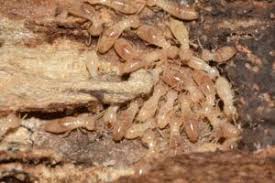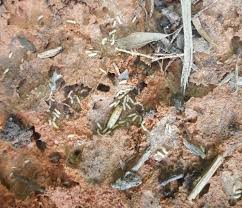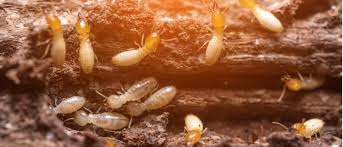6 Simple Techniques For Termite Control By Kerosene
Pheromone traps can detect the arrival of pests or alert foresters to outbreaks. As an instance, the spruce budworm, a destructive pest of spruce and balsam fir, has been monitored using pheromone traps in Canadian woods for several decades.22 In some regions, such as New Brunswick, areas of forest are sprayed with pesticide to control the budworm population and prevent the harm generated during outbreaks.23.
Many unwelcome animals go to or create their house in residential buildings, industrial sites and urban places. Some contaminate foodstuffs, harm structural timbers, chew through cloths or infest kept dry goods. Some inflict great economic loss, others take diseases or cause fire dangers, and some are only a nuisance. Control of these pests has been attempted by improving sanitation and garbage control, modifying the habitat, and using repellents, growth regulators, traps, baits and pesticides.24.

What Does Termite Control By Kerosene Do?
Rodents can be killed by appropriately baited spring traps and can be captured in cage traps for relocation. Talcum powder or"tracking powder" can be used to establish routes employed by rodents inside buildings and acoustic apparatus can be used for detecting beetles in structural timbers.24.
Historically, firearms have been one of the primary methods used for pest control. "Garden Guns" are smooth bore shotguns specially designed to fire .22 caliber snake shot or 9mm Flobert, and are commonly used by gardeners and farmers for snakes, rodents, birds, and other pest. Garden Guns are short range weapons which can do little damage past 15 to 20 yards, and they are relatively quiet when fired with snake shot, compared to a standard ammunition.

Termite Control Bunning's Or Mitre10 - Truths
The most common shooter cartridge is .22 Long Rifle loaded with #12 shot. At a distance of about ten feet (3 m), which is about the most effective range, the pattern is roughly 8 inches (20 cm) in diameter by a standard rifle. Particular smoothbore shotguns, like the Marlin Model 25MG can create effective patterns from 15 or 20 yards using.22 WMR shotshells, which maintain 1/8 oz.
Poisoned bait is a common method for controlling rats, rats, birds, slugs, snails, ants, cockroaches and other pests. The basic granules, or alternative formulation, contains a food attractant for the target species and a suitable poison. For ants, a slow-acting toxin is needed so the employees have enough time to carry the substance back to the colony, and for flies, a quick-acting substance to prevent additional egg-laying and nuisance.27 Baits for slugs and snails often contain the molluscide metaldehyde, dangerous to children and see household pets.28.
Warfarin has traditionally been used to kill rodents, but many populations have developed resistance for this anticoagulant, and difenacoum is often substituted.29 All these are cumulative poisons, requiring bait stations to be topped up regularly.27 Poisoned meat has been used for centuries to kill animals such as wolves30 and birds of prey.31 Poisoned carcasses nevertheless kill a wide range of carrion feeders, not only the targeted species.30 Raptors in Israel were nearly wiped out following a period of intense poisoning of rats and other crop pests.32.

The Greatest Guide To Termite Control Business
An alternative, space treatment, is fogging or misting to disperse a liquid insecticide in the air within a building without evacuation or sterile sealing, allowing most work within the building to continue, in the price of reduced penetration. Contact insecticides are generally used to minimise long lasting residual effects.33
Populations of insect insects can at times be dramatically decreased by the release of sterile individuals. This involves the mass rearing of a insect, sterilising it by means of X-rays or some other means, and releasing it into a wild population. It's particularly useful where a female only mates once and where the insect does not spread widely.34 This technique has been successfully used against the New World screw-worm fly, some species of tsetse fly, tropical fruit flies, the pink bollworm and the codling moth, among others.35.